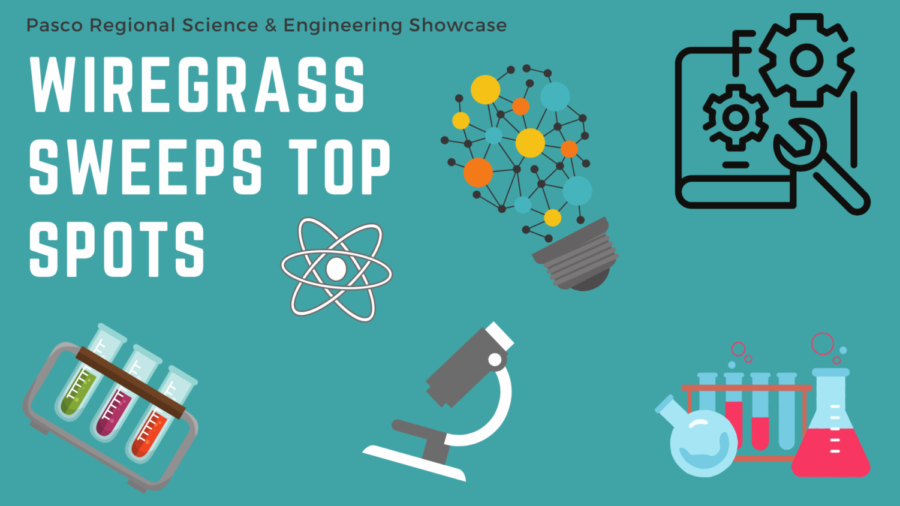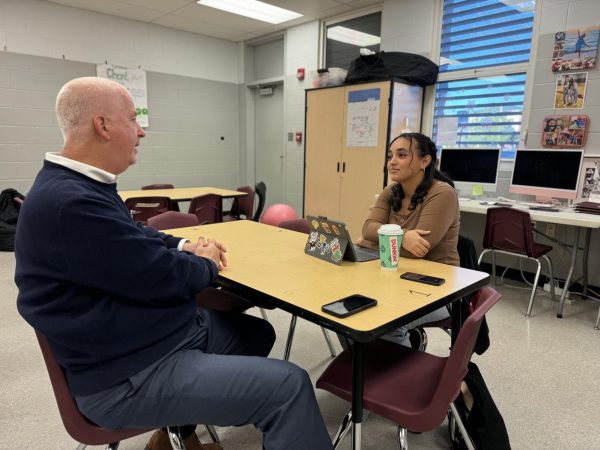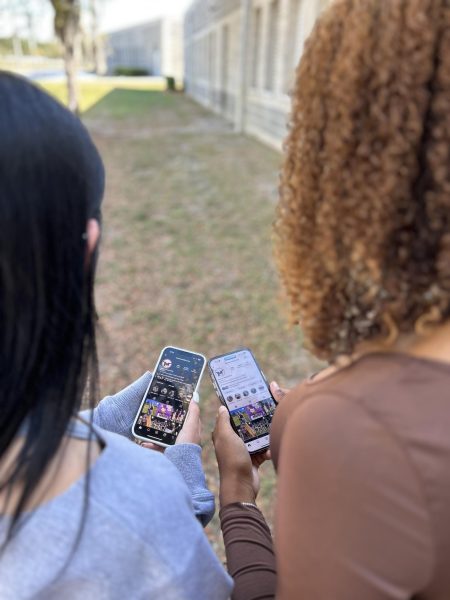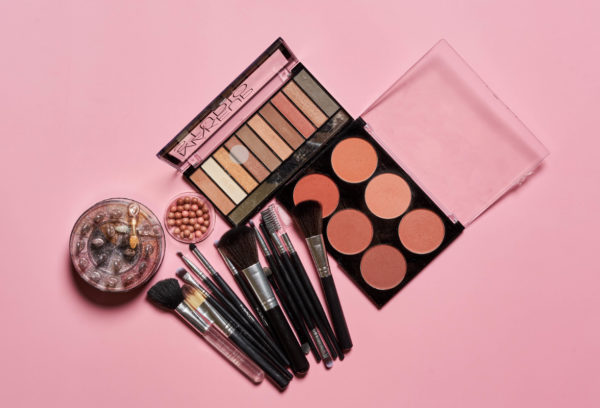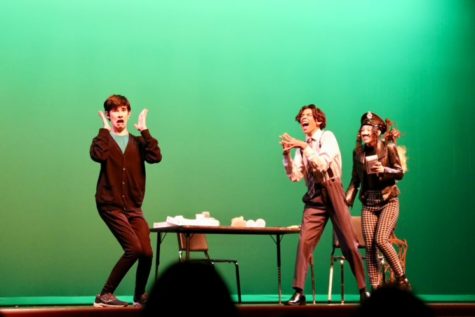Wiregrass sweeps top spots at Science Fair
Several students from WRHS were chosen to advance past the Pasco Regional Science and Engineering Showcase.
Earlier this year, 15 of Wiregrass Ranch’s research students competed in the Pasco Regional Science and Engineering Showcase. 11 of these students were chosen to advance to the State competition at the Showcase Awards Gala, while three of them advanced even further to the International Showcase.
The Science and Engineering Showcase is an esteemed event that requires a lengthy process and in-depth research. In order to move on to State and International competitions, students must be fluent in their research project and be able to communicate their concept effectively to a panel of judges, as well as answer their questions.
This year, all three students who will be representing Pasco County Schools at the International Showcase are from Wiregrass. Following last year’s success, this will be the second year in a row where Wiregrass swept the top spots at Regionals. This means that in the past four years, Wiregrass students represent 11 out of the 12 total students who have been selected Best in Show and chosen to advance to the International Science fair.
An accomplishment as hard-to-reach as this requires a great deal of time and effort, as academic competitions at these levels are far from easy.
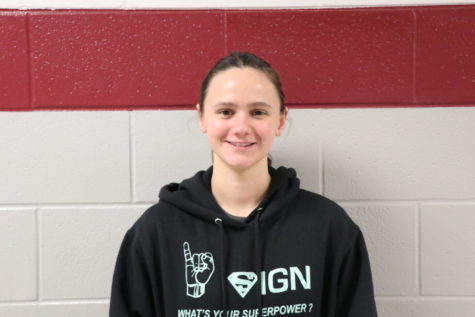
Raven Pascua, a Junior at WRHS, was chosen to present her project at the International level and took painstaking steps to ensure she knew every square inch of her topic.
“I was spending over 20 hours a week just researching my topic and getting an understanding of it,” Pascua explained.
Over the past few months, these students put everything into their research and faced obstacles along the way with resilience. Cemre Kayisli, a Senior who is also representing WRHS at Internationals, is well experienced with blocks that may expose themselves during the research process.
“With research most of the time you come up with a topic and begin researching and then it just goes down in flames because somebody has already done your topic,” Kayisli expressed.
Arguably the hardest aspect of the competition is producing a purely original presentation that has not been completely researched already. All students moving forward have unique projects in their field, which is not a simple feat.
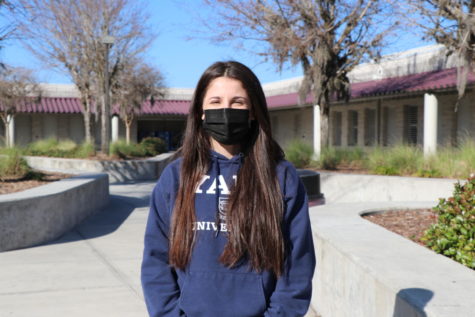
Perhaps the most important feature of an excellent research project is its impact on others. The few students who were able to catch the judge’s attention not only had to advocate their information but also how it could potentially help others, and in some cases, even themselves.
“I started in prosthetics originally because my grandfather needs a knee replacement, so I tried to figure out how I could improve what’s already out there,” Pascua explained. “[From there] I ended up stumbling across different complications and that’s how I got into my particular infection.”
As with most academic competitions, the Science and Engineering Showcase can be particularly intense at times. With so many bright kids gathered in one place, it may very well be intimidating, even for those who have extensive projects.
Katelyn Paciorek, who’s also moving onto the international competition, reflects on the particularly stressful aspects of the Regional Showcase.
“There were a lot of times where I felt my project couldn’t compete with the others in the competition but getting around that was really just getting to know my project and expanding it in different directions so I could feel confident in myself and the project I was doing,” Paciorek said.
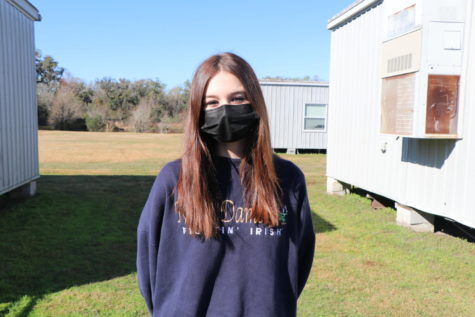
Overall, it seems that with all the effort these students put into their research, the science fair was a tremendously rewarding experience. The environment created by judges and other students facilitates a rare experience where they are empowered to share the knowledge they’ve gathered for the past months with one another.
“Originally, the science fair wasn’t something I wanted to do but after doing it, it was probably one of the best decisions I’ve made in my high school career just because it allowed me to grow and learn with a group of researchers that have similar aspirations as I do,” Paciorek explained.
Your donation will support the student journalists of Wiregrass Ranch High School. Your contribution will allow us to purchase equipment and cover our annual website hosting costs.
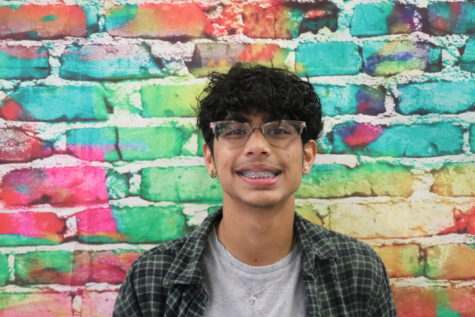
Ashton is a senior at Wiregrass Ranch and this is his first year writing for The Stampede. He is the editor-in chief of The Stampede and an active member...

